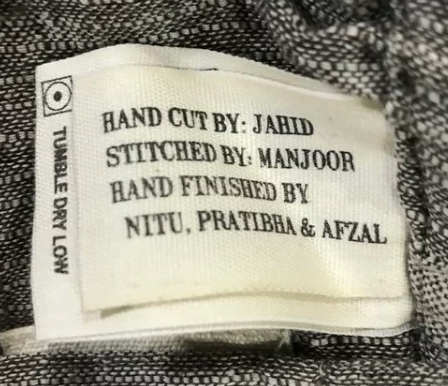New Favorite Brand is a monthly series where The Indubitable highlights brands that not only make beautiful merchandise, but they do it with integrity and adherence to progressive values. The focus will be on smaller and/or newer brands that aren’t household names yet but should be.
The COVID-19 global pandemic hit the garment production industry as hard as anyone else. The global supply chain came to a halt in Spring 2020 and the workers at the beginning of the chain have been hit the hardest. Asian garment production facilities were already rife with human rights violations before the pandemic caused most of the industry to shut down all together. The igregious state of the system and its catastrophic collapse were both results of a global garment production industry that has been spiraling out of control for the past half century. Fast Fashion’s breakneck production speed exacerbated existing problems and doomed the entire industry. If the global garment industry was a pile of old rags, then Fast Fashion soaked the pile in lighter fluid before COVID-19 tossed a lit match on it.
The only hope for the future of the garment industry is if lessons are learned from mistakes made and a wiser system rises from the ashes. Fortunately, hope comes from existing brands that have pioneered modern business models based on classic (sometimes ancient) production techniques, environmental sustainability, fair payment and treatment of labor, and progressive marketing and distribution techniques. Kardo is a prime example of just such a company.

Kardo was founded in 2013 in New Delhi, India. India’s rich textile heritage is reflected in Kardo’s garments . They source “traditional weaving, dying and printing techniques for their collections, using fabrics such as Natural Dyed Handloom, Block Printing, IKAT, Natural Indigo Denim, Shibori and Chikankari embroidery.” These fabrics are hand cut and sewn into finished garments using Kardo’s ONExONE process where each step is done by a single artisan. Every piece produced has a tag listing the names of who performed each step. This extra effort is made to stress the humanity involved in garment production upon the end purchaser. The people who made your shirt have names, they’re listed here.

